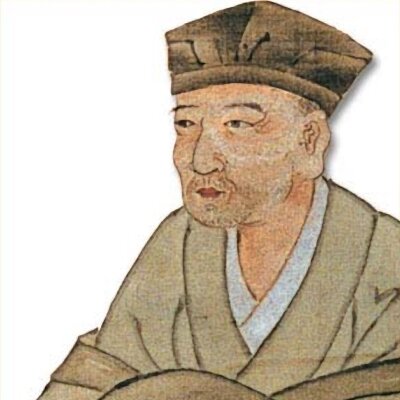
“The Great Way” by Wu Men
Wumen Huikai (1183–1260) was a Zen Master most famous as the compiler of and commentator on the 48-koan collection The Gateless Gate (Japanese: Mumonkan.

"REALIZATION-WAY SONG" — Cheng-tao Ke, translated by Alan Watts in The Way of Zen
Like the empty sky
it has no boundaries,
Yet it is right in this place,
ever profound and clear.
When you seek to know it,
you cannot see it.

“The Gates of Paradise " by Japanese Zen teacher Muju
A soldier named Nobushige came to Hakuin, and asked: "Is there really a paradise and a hell?"
"Who are you?" inquired Hakuin.
"I am a samurai," the warrior replied.
"You, a soldier!" exclaimed Hakuin. "What kind of ruler would have you as his guard? Your face looks like that of a beggar."

These Zen Buddhist Koans Will Open Your Mind by Carol Kuruvilla (excerpt by Kosin Paley Ellison) Huffington Post
"These Zen Buddhist Koans Will Open Your Mind" by Carol Kuruvilla (excerpt by Kosin Paley Ellison) Huffington Post
Once a monk made a request of Joshu.
“I have just entered the monastery,” he said. “Please give me instructions, Master.”
Joshu said, “Have you had your breakfast?”
“Yes, I have,” replied the monk.
“Then,” said Joshu, “wash your bowls.”
The monk had an insight.

"RITUAL" — Zen Story
When the spiritual teacher and his disciples began their evening meditation, a cat who lived in the monastery made such noise that it distracted them…

"The Monk With Sweaty Palms" from A NEW EARTH by Eckhart Tolle
Kasan, a Zen teacher and monk, was to officiate at a funeral of a famous nobleman.
As he stood there waiting for the governor of the province and other lords and ladies to arrive, he noticed that the palms of his hands were sweaty.
The next day he called his disciples together and confessed he was not yet ready to be a true teacher.

"Vanity" — Unknown
There was a Zen monk whose vanity was his poverty and humility. He lived in a cave outside his monastery, ate only food he could glean from what others threw away, and washed his robes only by walking in the rain. Once every week he would leave his cave and enter the monastery. There he would choose a young monk to walk with him that day so that he might give the younger man the benefit of is wisdom, which he was sure was both vast and deep. He delighted in tormenting the young students, and then lecturing the abbot about the poor quality of his teachings. One day while walking, the young man which he had chosen stopped to squat down and crap. When he finished, he looked up to the old monk and said, "Sensei, may I have a leaf to wipe my ass?'

"Haiku: Eastern Culture" - Translations and commentary by Reginald H. Blyth
A haiku is not a poem, it is not literature;
it is a hand becoming,
a door half-opened,
a mirror wiped clean.
It is a way of returning to nature,
to our moon nature,
our cherry blossom nature,
our falling leaf nature,
in short, to our Buddha nature.

Zen Poem — Ikkyu
Every day priests minutely examine the Dharma (universal law)
and endlessly chant complicated sutras.
Before doing that, though,
they should learn how to read the love letters
sent by the wind and rain,
the snow and moon.

“A Taoist Priest” (a Zen Poem) - found in ‘Tao of Jeet Kune Do’ by Bruce Lee
“The empty-mindedness of chi sao applies to all activities we may perform, such as dancing. If the dancer has any idea at all of displaying his art well, he ceases to be a good dancer, for his mind stops with every movement he goes through. In all things, it is important to forget your mind and become one with the work at hand. When the mind is tied up, it feels inhibited in every move it makes and nothing will be accomplished with any sense of spontaneity. The wheel revolves when it is not too tightly attached to the axle. When it is too tight, it will never move on. As the Zen saying goes:

